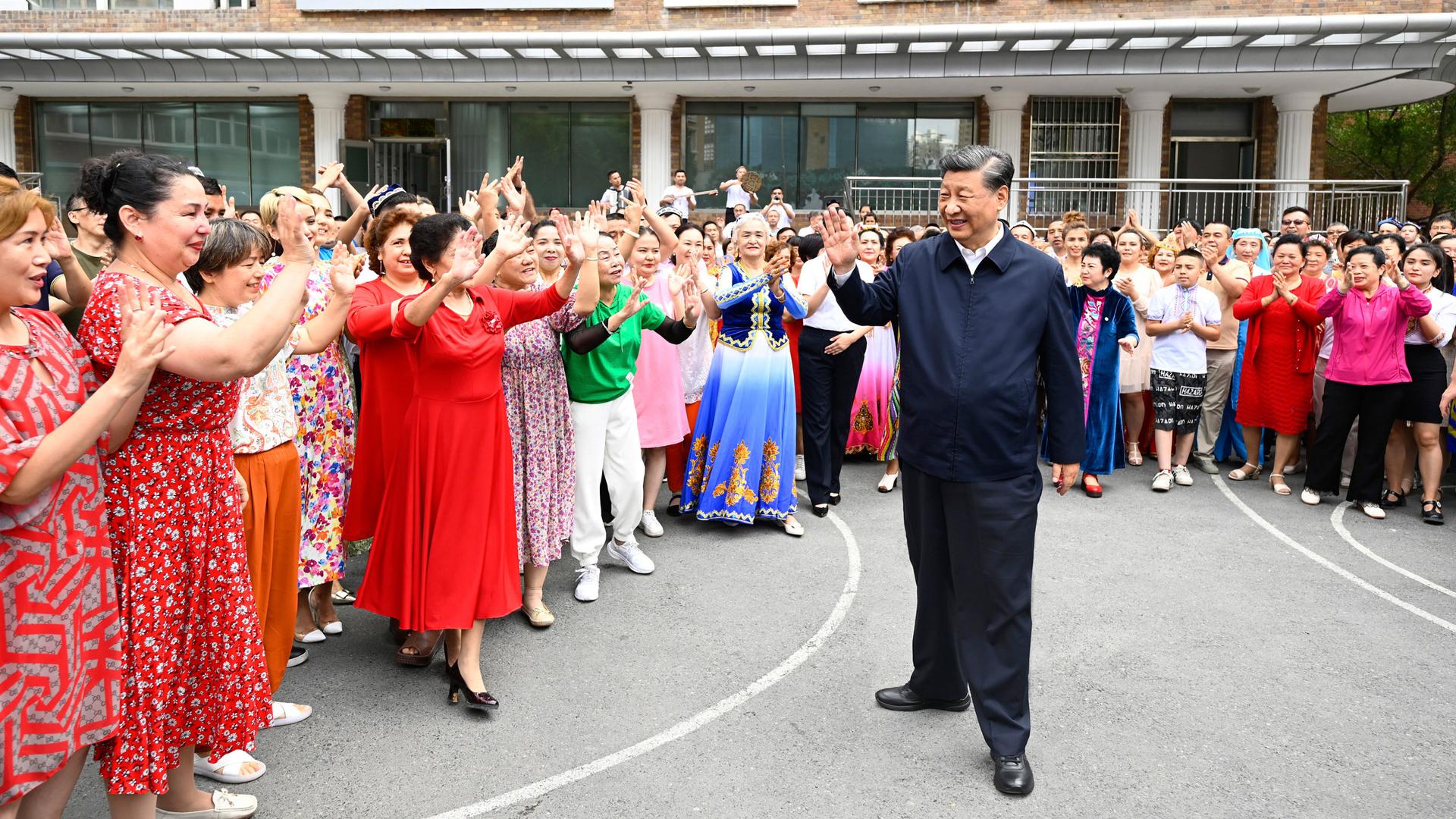Most of us rarely look at our clothing tags, but it’s possible that our clothes were manufactured by Uyghur people working under forced labor conditions in Xinjiang, China.
A new US law called the Uyghur Forced Labor Prevention Act bans the import of those items to the United States. The law was intended to disrupt connections to Xinjiang, where more than 100,000 Uyghur Muslims and other minorities in the region are working in factories against their will, according to the US Department of Labor.
Now, US companies are beginning to reexamine their supply chains to make sure they’re adhering to the new law, said human rights lawyer Rayhan Asat, a senior fellow at the Atlantic Council.
“Under the Uyghur Forced Labor Prevention Act, the Custom Border Protection commissioner must apply a presumption that goods mined, produced or manufactured wholly or partially in the Xinjiang region are produced by forced labor in violation of the US law,” she said.
It’s the first time that the US has a law to impose demanding standards on importers to disprove the use of forced labor in their goods coming into the US, she noted.
Until now, it’s been challenging to hold companies accountable due to the opaqueness of supply chains and an absence of auditors. Under the new law, companies can be expected to conduct more rigorous, third-party due diligence and also ensure that their internal compliance policies are up to standards, Asat noted.
“Companies should establish very strong company management systems and identify and assess risk in the supply chain.”
One month since the law went into effect, Asat said that she’s starting to see companies change the way they’re doing business to make sure they’re in compliance with the law.
This extends beyond the United States to Europe.
“I’m confident that we’re at a turning point for countries and continents like Europe that are ready to tackle this as a global problem,” Asat said.
Meanwhile, Chinese leader Xi Jinping has shown no sign of backing off policies that impact Uyghur labor concerns in the region, highlighting social stability and security as overarching goals, the official Xinhua News Agency said Friday.
“So far, the international community has failed to impose any sort of costs [or compel] meaningful action on the Chinese government to correct its behavior in relation to one of the gravest human rights abuses and crimes against humanity of our time,” Asat said.
AP contributed to this report.
We want to hear your feedback so we can keep improving our website, theworld.org. Please fill out this quick survey and let us know your thoughts (your answers will be anonymous). Thanks for your time!
